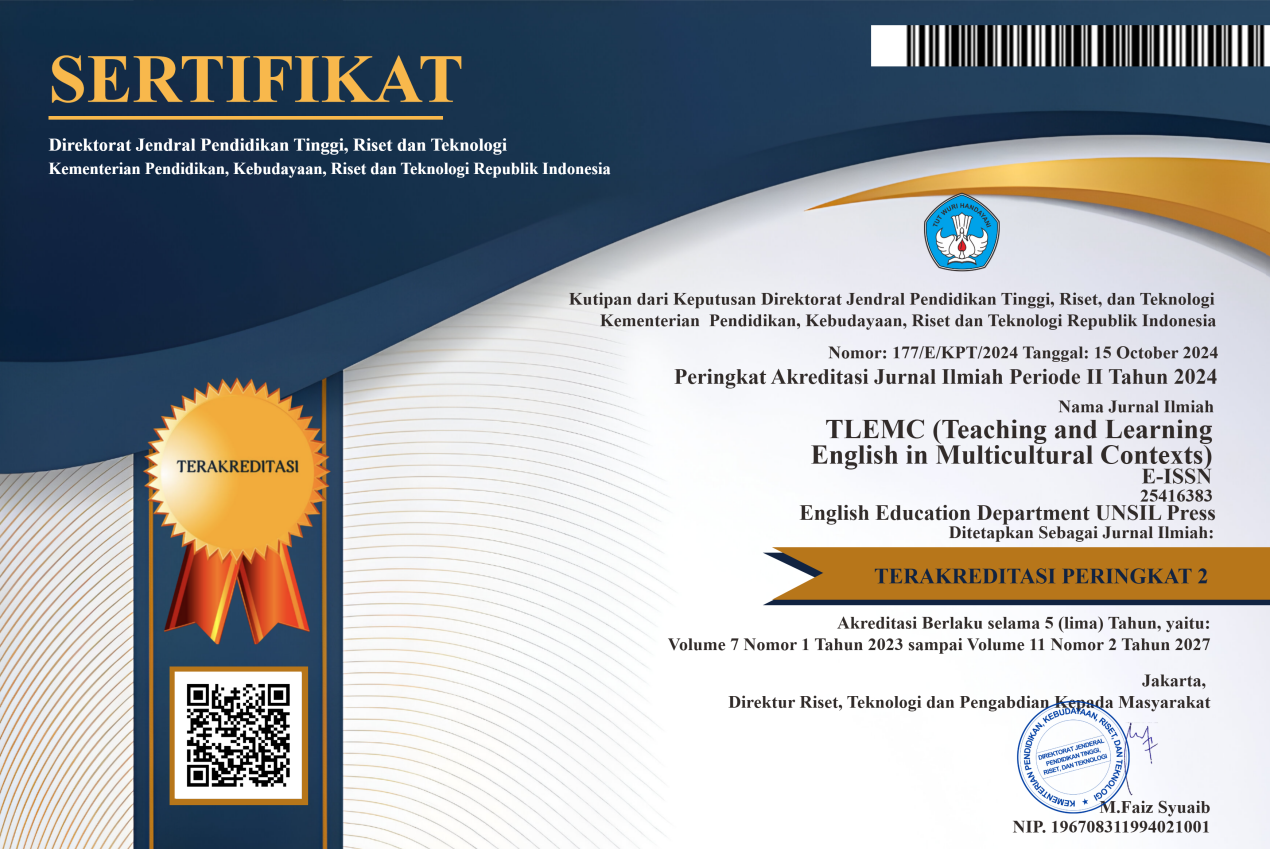DIALOGIC READING AS A POTENTIAL ACTIVITY TO FACILITATE THE LEARNING OF LISTENING AND SPEAKING SKILLS
Abstract
This paper will address the potentials of implementing a modified version of a particular shared book reading activity called ‘Dialogic Reading’ as an alternative activity to facilitate the learning of listening and speaking skills of EFL learners. Dialogic reading itself is defined as a form of shared book reading activity in the form of a dialogue between the readers (usually between or among adults and children, both in a one-on-one or a small group reading setting). To date, the existing studies have indicated that Dialogic Reading is an effective activity for young learners to learn basic reading skills, vocabulary, oral language and narrative skills (Whitehurst, 1992; Zevenbergen & Whitehurst, 2002; Ping, 2014; Ping & Syamdianita, 2015). However, considering the highly interactive, input-rich, multimodal learning environment that Dialogic Reading brings, this activity can also possibly be adapted and modified to facilitate the learning of listening and speaking skills for learners of different age groups and levels. Therefore, in this talk, I will discuss firstly the conceptual framework and then report the recent empirical study on the implementation of Dialogic Reading to improve young adult EFL learners’ receptive and productive skills I have been conducting starting early this year.
Full Text:
PDFDOI: https://doi.org/10.37058/tlemc.v1i1.398
Refbacks
- There are currently no refbacks.
INDEXED BY:
This work is licensed under a Creative Commons Attribution-NonCommercial-ShareAlike 4.0 International License.
![]()
TLEMC (Teaching and Learning English in Multicultural Contexts)
Program Studi Pendidikan Bahasa Inggris
Fakultas Keguruan dan Ilmu Pendidikan
Universitas Siliwangi
Jl. Siliwangi No. 24 Kota Tasikmalaya - 46115
email: tlemc@unsil.ac.id





